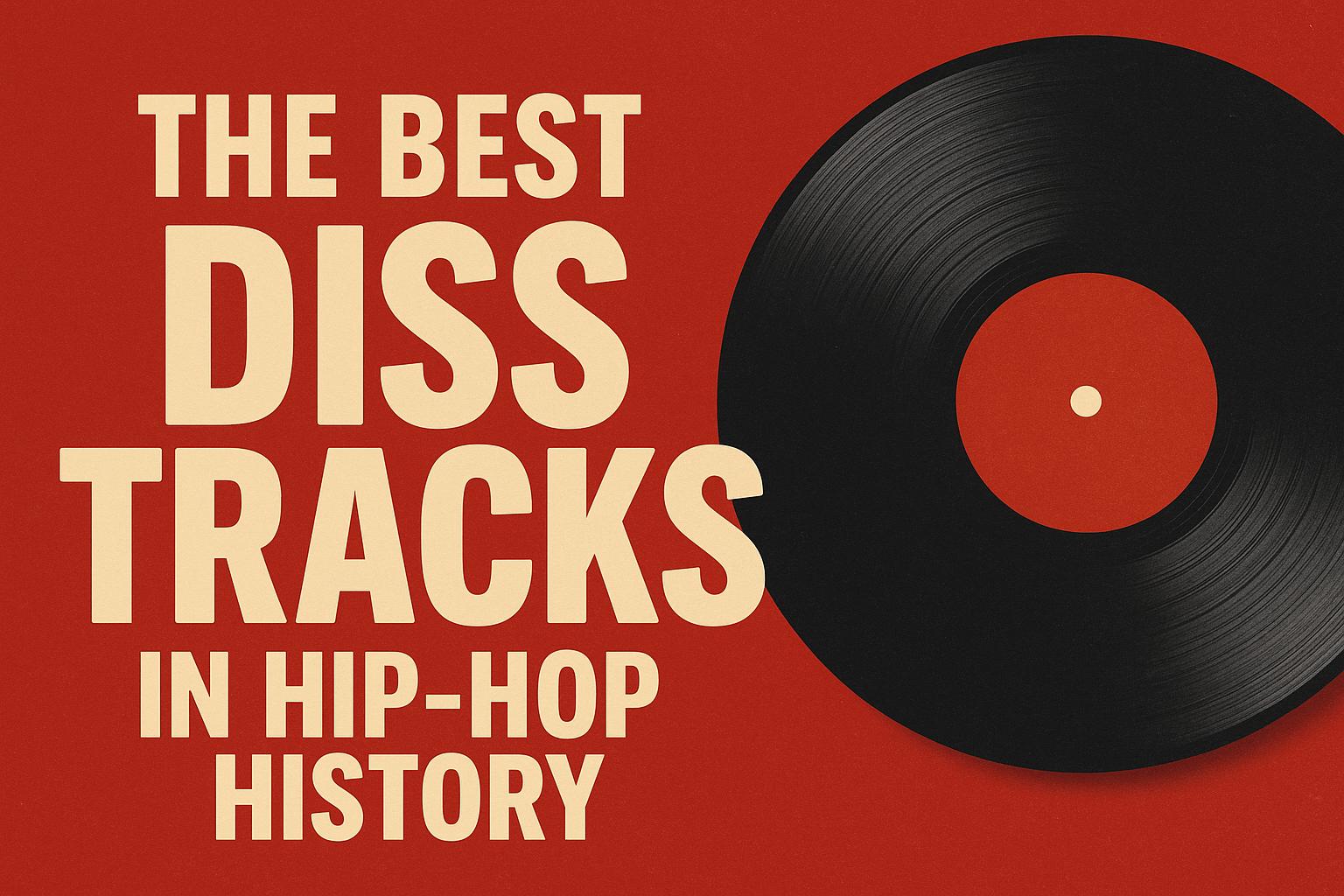Introduction to Diss Tracks in Hip Hop
In the competitive world of hip hop, diss tracks have long served as a form of lyrical sparring where artists address their adversaries in music form. These tracks can range from subtle jabs to all-out verbal assaults, serving as a testament to the unique combination of competitive spirit and artistic expression inherent in the genre. Below is a deep dive into some of the most impactful diss tracks in hip hop history, highlighting their significance within the genre and their lasting influence on artists and fans alike.
“Ether” by Nas
Released in 2001 as part of the album Stillmatic, Nas’s “Ether” stands as a hallmark in hip hop’s storied history of lyrical battles. Aimed squarely at New York rapper Jay-Z, “Ether” delivered a significant blow in one of hip hop’s most well-documented rivalries. With intricate wordplay and an aggressive delivery, Nas didn’t just create a diss track; he crafted an anthem of defiance and lyrical prowess.
The Impact of “Ether”
The cultural reverberations of “Ether” were profound. The track not only solidified Nas’s position in the pantheon of hip hop greats but also influenced the terminology of the genre itself. To be “ethered” now means to be decisively defeated in a verbal altercation. “Ether” set a new standard for diss tracks, where the aim was not just to insult, but to systematically dismantle an opponent’s persona and reputation.
“Hit ‘Em Up” by 2Pac
In 1996, “Hit ‘Em Up” was unveiled by 2Pac, who unleashed a torrent of anger and direct threats primarily targeting The Notorious B.I.G. and Bad Boy Records. The track is infamous not only for its unapologetic and raw aggression but also for the deeply personal nature of its lyrical content. “Hit ‘Em Up” embodies the raw tension of the East Coast-West Coast rivalry and serves as a chilling historical document of that tumultuous time in hip hop.
Controversial Reception
“Hit ‘Em Up” was more than a diss track; it was a declaration of war in a cultural battle that was playing out on the national stage. The song’s reception was mixed; while some praised 2Pac for his candidness and fearless attitude, others criticized the track for escalating a conflict that had already resulted in several violent incidents. The track undeniably intensified the East Coast-West Coast rivalry, leaving an indelible mark on the genre.
“Takeover” by Jay-Z
As part of Jay-Z’s 2001 album The Blueprint, “Takeover” represented a different approach to the diss track format. Rather than relying on raw aggression, Jay-Z opted for a calculated and strategic dissection of his opponents, including Nas and other artists. The track is an exemplar of Jay-Z’s ability to leverage facts and articulate his superiority with a composed, almost surgical precision.
Critics’ Analysis
The methodical nature of “Takeover” has been praised by critics who appreciate its structured form and evidence-based takedowns. Jay-Z’s approach differed significantly from the emotional bombast of many diss tracks, allowing him to showcase his skills as both a lyricist and a tactician. This strategic layer adds another dimension to the competitive storytelling that is central to hip hop culture.
“No Vaseline” by Ice Cube
In 1991, Ice Cube released “No Vaseline,” aimed at his former group, N.W.A., in a scathing critique following his separation from them. The track is a narrative of betrayal and confrontation, articulated with Ice Cube’s distinctive, unapologetic style. It was a raw and unfiltered response to the personal and professional grievances that had built up over time.
Legacy of “No Vaseline”
“No Vaseline” is heralded as one of the most ferocious diss tracks ever recorded. It demonstrated Ice Cube’s prowess in addressing personal issues with brutal honesty and artistic integrity. The track highlighted how powerful and personal hip hop could be when its artists channel real-life experiences into their music, showing how the genre serves as a vehicle for expression and confrontation.
The Role of Diss Tracks in Hip Hop
Diss tracks occupy a unique place in hip hop culture, serving not only as a platform for rivalry but also as a testament to the creative and competitive nature of the genre. These tracks allow artists to confront each other in a public forum, using their lyrical craft to engage in verbal battles that often become part of hip hop lore. Diss tracks such as Nas’s “Ether” and Ice Cube’s “No Vaseline” represent various facets of this art form, from aggressive takedowns to introspective confrontations.
Evolution and Influence
The influence of diss tracks extends beyond the immediate impact of the feud they may address. They inspire generations of artists to refine their lyrical abilities, pushing the boundaries of language and performance. Largely rooted in the tradition of battle rap, these tracks have evolved to become an integral part of hip hop’s global influence, promoting a competitive spirit that spurs evolution and reinvention within the genre.
Conclusion
From Nas’s “Ether” to Ice Cube’s “No Vaseline,” diss tracks have served not only as tools of conflict but as expressions of artistry that demonstrate the lyrical skill and competitive essence of hip hop. These artistic confrontations continue to influence the genre by illustrating the creative brilliance and competitive spirit that is intrinsic to hip hop. As these diss tracks echo through the annals of music history, they remind us that hip hop is as much about the battle of words as it is about the rhythms and beats that drive the culture forward.


